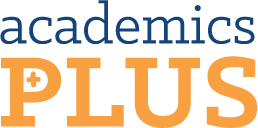According to "Torkel Klingberg, MD, PhD, an assistant cognitive neuroscience professor at the Karolinska Institute in Sweden, 'It could be that working memory problems give rise to observable behavioral symptoms of ADHD: distractibility and also poor academic achievement.'
Eye movements could help in diagnosis of neurological disorders
Centers throughout the brain work together to make reading possible
An Extra Hour of TV Beyond Recommendations Diminishes Toddlers’ Kindergarten Chances
Every hourly increase in daily television watching at 29 months of age is associated with diminished vocabulary and math skills, classroom engagement (which is largely determined by attention skills), victimization by classmates, and physical prowess at kindergarten, according to Professor Linda Pagani of the University of Montreal and the CHU Sainte-Justine children’s hospital.
Practice Makes the Brain’s Motor Cortex More Efficient
Disruptions: Using Addictive Games to Build Better Brains
Neuropsychological Apsects for Evaluating Learning Disabilities
Neuroandragogy: Making the Case for a Link with Andragogy and Brain-Based Learning
“With the help of brain imaging, researchers have been able to see the brain at work, thus providing information most valuable to those working with the human brain; such as educators, scientists, psychologist and medical doctors. It is this advance in technology and gain in knowledge that has led to the development of brain-based learning, a new paradigm that holds a wealth of information for teachers and students alike."
The relationship of spelling recognition, RAN, and phonological awareness to reading skills in older poor readers and younger reading-matched controls
“Furthermore, spelling recognition contributed significant variance to reading comprehension for both dyslexic and nondyslexic children after the effects of phonological awareness, rapid naming, and word reading proficiency had been accounted for. The results support the role of spelling recognition in reading development for both groups of children and they are discussed using a componential reading fluency framework.”

